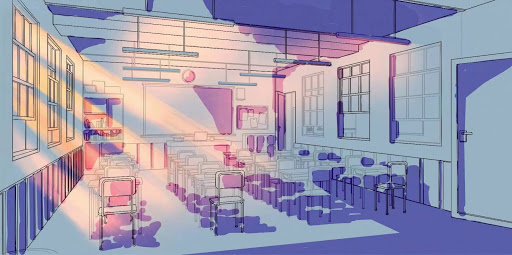After our first playtest of the prototype, and consulting with our SME, we received feedback that the topic of controversy that we chose (ban chalk) was not very relatable to middle school students. So we picked a different topic – Deep fried chicken.
Aside from that, we finally received responses to our initial audience research surveys that we sent to schools. The responses confirmed some of our suspicions about the exposure of middle school students to media literacy. The following are visualizations of some of the responses.
n=34, 8th grade students


This distribution of responses gave us some relief that our decision to use social media would be a good one. However, we also found that less than 3% of our audience wanted to read as a hobby. This could potentially pose a problem to us as we were creating a visual novel that requires the players to read to engage with the game.
Design
We created paper prototypes for the exploration of a hallway. This hallway would be in a 2D perspective from the side. So we would scroll from side to side to move through the hallway. Students will be in the hallway, going about their daily activities. Only certain students are relevant to our story. So we will use silhouettes for all the other students. A rough prototype of the hallway can be seen in the image below.

We feel that the exploration of the hallway would add an element of engagement to the game.
Art


Programming
This week we improved our searching functionality by making the web pages interactive. The dialogues can now be triggered from different points in the game – web pages, search engine, Meowwer, etc. We also connected web pages to search results. The webpage to be shared as a reference can be bookmarked.


The social media interface was also integrated into the game. Meowwer can now be opened as an app within the smartphone.
As part of the game, we decided that we would add some points of analytics or player choice tracking to obtain a quantifiable set of player choices in our game. So we spent time researching if we could use Firebase as a viable option. Unfortunately, it cannot be used as there is no plugin support for Unity3D in a WebGL build. And so we decided to put it on hold for the time being.
Next Steps
- Schedule a playtest for the upcoming week.
- Ensure that Chapter 1 is ready for playtesting.
- Reach out to other partners to playtest with us.
- WQED Pittsburgh is working on a program to connect schools with development teams that are working on experiences that would benefit the student community.